That's it, it's finally the turn of the BS-TBS TV special "Oda Nobunaga", featuring Ken Watanabe as our Demon Lord!
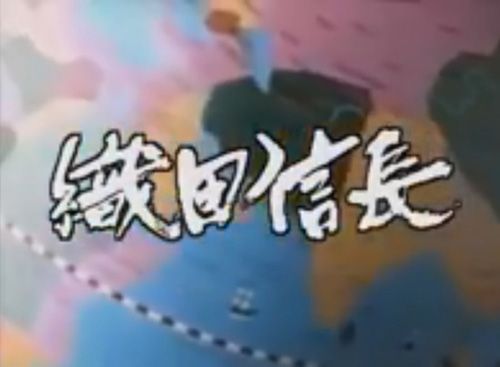
I decided to review this series only now because, I wanted to introduce you to "The Lucky Adventurer" of 1959 first, so to provide you a source of comparison for the two movies.
Despite the obvious differences, in fact, I found a lot of similarities between the two movies, if just for the acting of Watanabe, that seems to take a lot from Nakamura's.
The Nobunaga of Watanabe is one of those rough, "meaty" interpretations that I like a lot.
If not as massive as Eguchi, Watanabe offers a nice presence and a strong gestuality that make his performance sanguine enough.

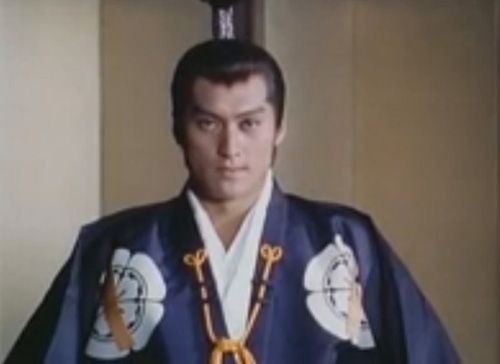
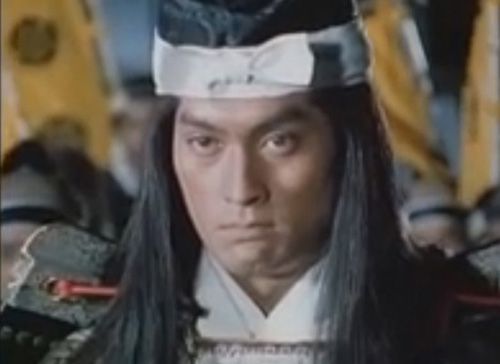
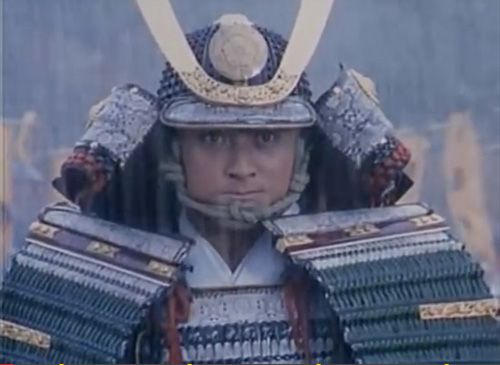
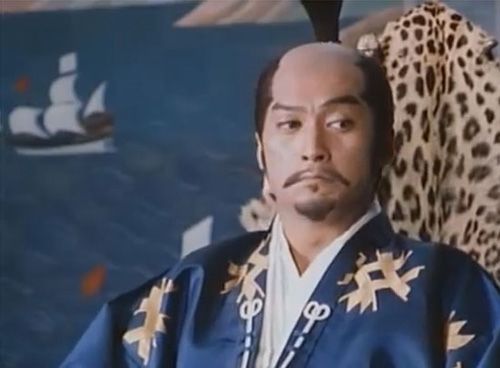
I investigated the curriculum of Watanabe, and again I found the theatrical experience: right after graduation he entered the troupe En in Tokyo, where he met his first great success.
The role that he played in "Shimodani Mannencho Monogatari", set in the ill-famed quarter of Ueno of the postwar period, was that of Yoichi, a lively boy who cared for a dangerous life. Following this experience he was scouted to take part in TV roles, his most famous performance being that of Date Masamune from the taiga drama "Dokuganryū Masamune" of 1987-- Since then the role of the samurai stuck to him, as we noticed in his most recent "The Last Samurai", where he played an intense Katsumoto-dono.
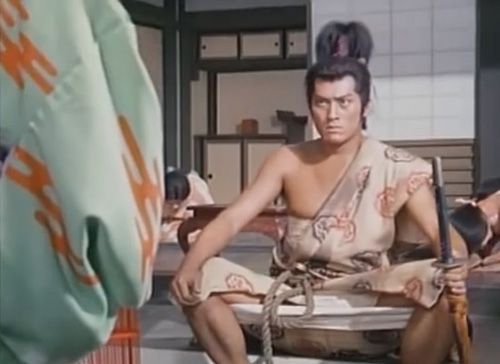
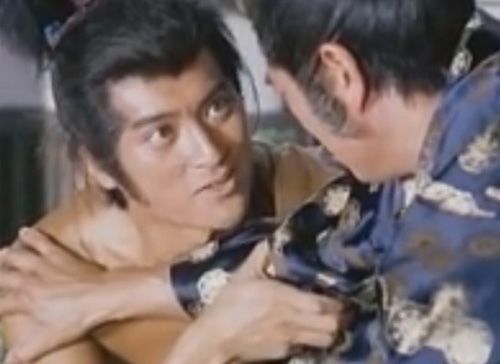
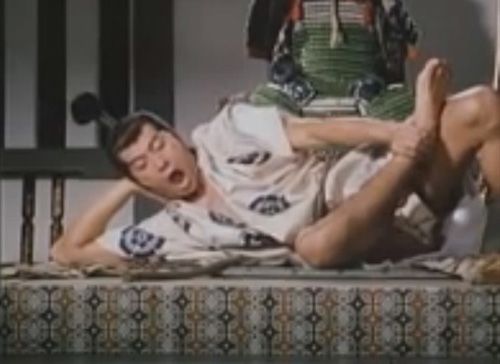
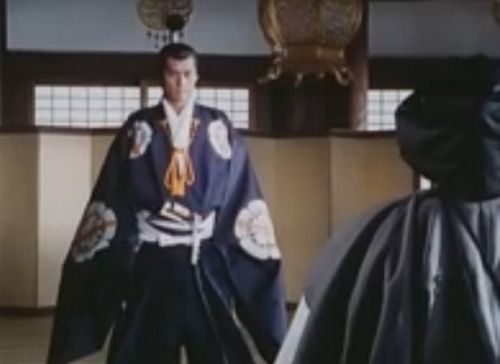
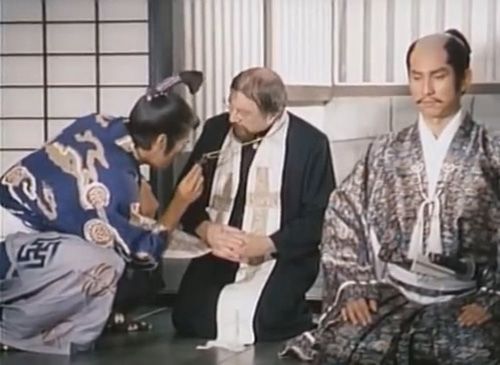
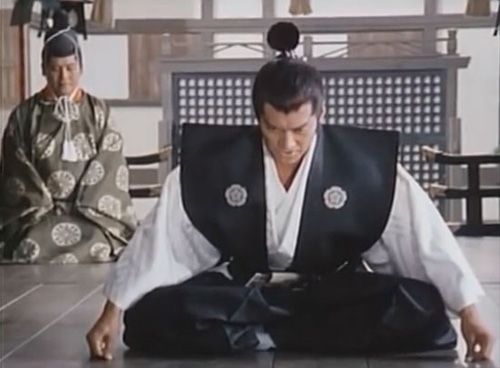
--Let's proceed with the other actors starring in the movies.
First one to get a mention is Sakagami Shinobu, who played the role of Nobuyuki, Nobunaga's rebellious little brother:
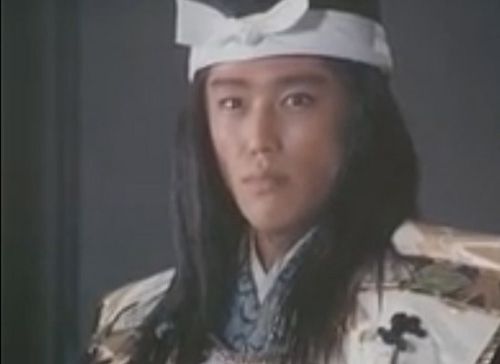

In this story, he didn't betray Nobunaga, but was forced to do so by the treacherous vassal Hayashi Mimasaka, who took him hostage in Kiyosu as Nobunaga was up to raise hell-- In the end Nobuyuki committed seppuku, trying to rebel to the villainous plots of Mimasaka.
It's interesting to note that the one alerting Nobunaga on the matter was a penitent Katsuie, who presented himself in front of Nobu, showing his penance with a bald head for his treacherous actions.
Next is Natori Yuuko, someone who finally offered a charming, entertaining portrait of Nouhime:
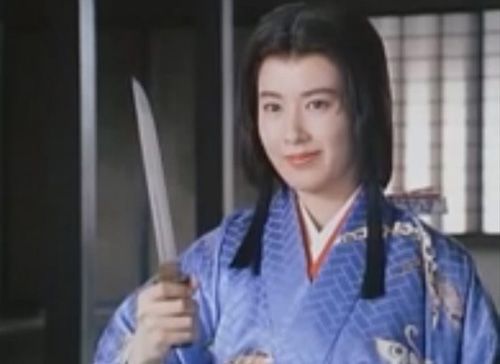
She is definitely my favourite Nouhime ever.
Dosan was played by Matsukata Hiroki:
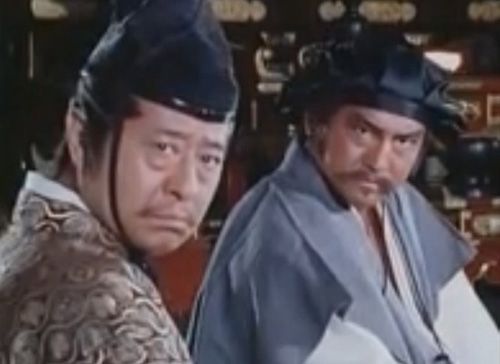
Hideyoshi was played by a fun Wakayama Tomisaburo:
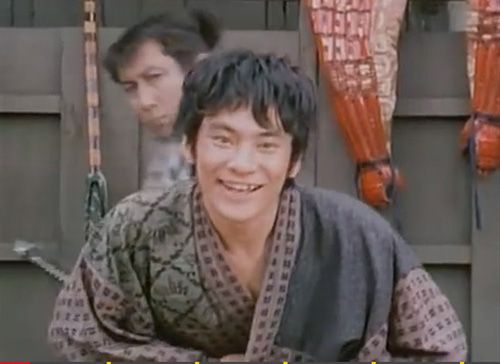
His relationship with Nene is greatly explored in the movies, and he's one of the few characters who enjoyed a good deal of screentime.
Ieyasu is Sanada Hiroyuki:
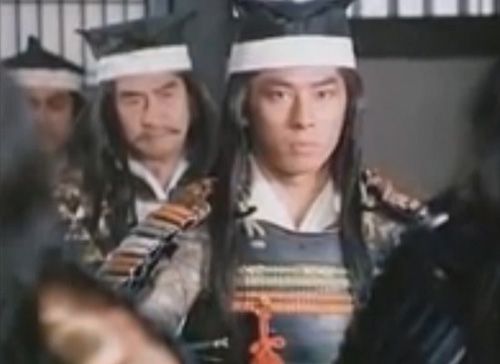
I loved how he replied quickly confirming hid friendship with Nobunaga to Yoshimoto XD
He said some smart stuff to Nobunaga during the movie, one of the most charming that of great men tending to become the greater nuissance when Nobunaga was telling him about Nagamasa, here played by a sly Nezu Jinpachi:
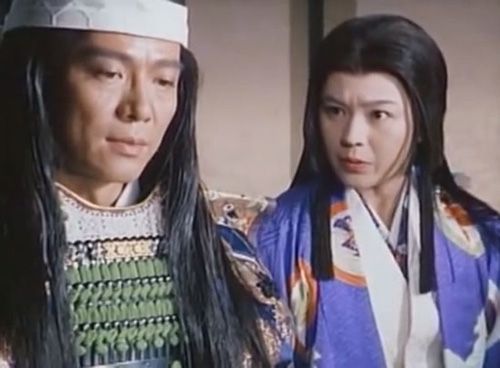
He's depicted since the beginning in a "threesome" of interests with both Asakura's and shogun Ashikaga, in the end he doesn't hesitate to betray Nobunaga and was expecting Oichi to die with him too!
Poor Nobu didn't enjoy any of this.
Some interesting bits about this series, then!
In the story is implied that Dota Gozen (Tsukasa Yoko) after the Death of Nobuyuki decided to become a nun and to retire in the temple of Kasugai together with Oichi (Kanou Miyuki).
Oichi would later be called back home by Nobunaga to marry Nagamasa.
The first experience of Nobunaga with luxuries and tea stuff wasn't with the shogun in Kyoto, but in Mino, with the misterious vassal of Dousan Ami "The Oni", that would be revealed to be Koyo (Toake Yukiyo), the lover of Dousan and a sophisticated lady that Nobunaga would befriend his whole life:
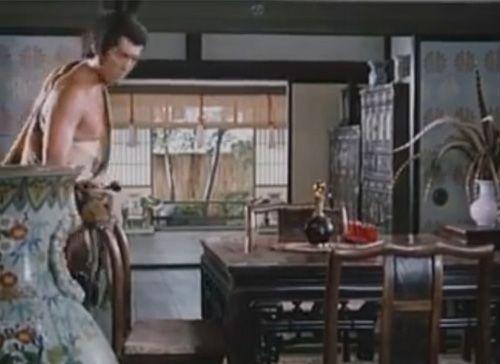
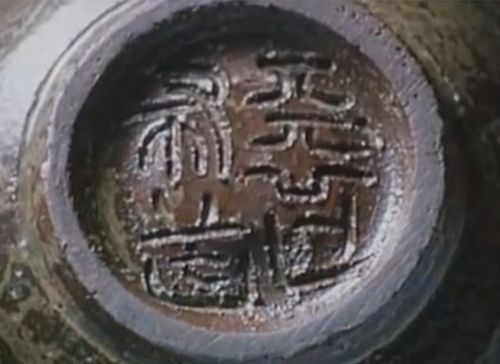
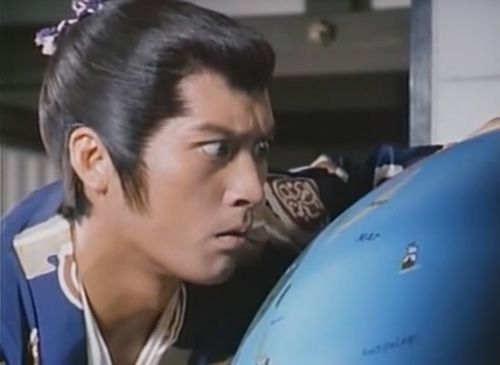
Later on Koyo would leave Japan to travel across the world and become a merchant of Sakai, one of those who used to be Nobunaga's intimate friends in his Azuchi times.
The Atsumori!!
Here Nobunaga danced it two times. Before the battle of Okehazama, as usual, and at the end of the movie, in Azuchi, as a comment to Koyo's words about the need of a thousand years to tell him all the stories that she gathered during her travels around the world:
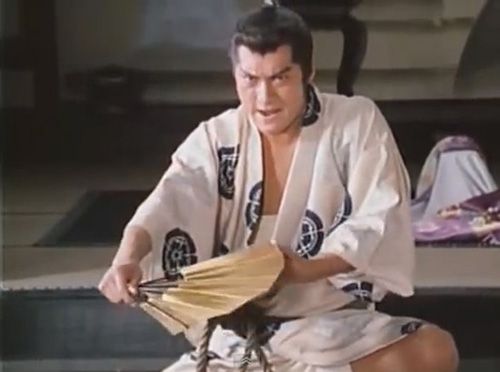
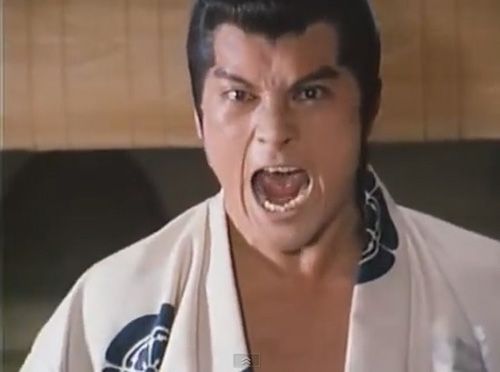
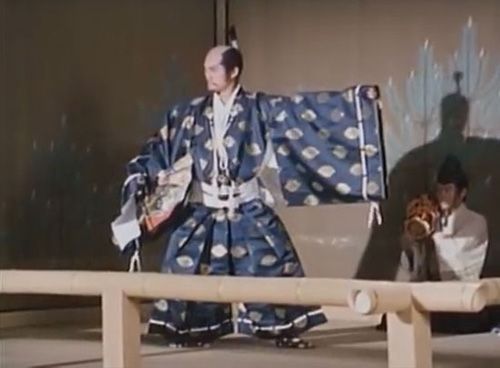
Another interesting bit is that of Nobunaga as a father:
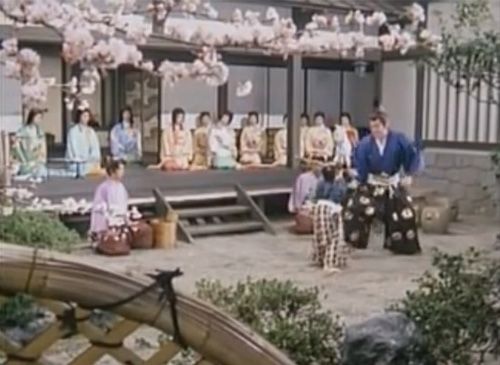
The scene above refers to the birth of Nobutaka, who received the vague name of Sanshichi (the date of his birth, March 7) because yeah, Nobunaga was quite earnest in fathering boys, but also pretty much "indifferent" to them, unless for the fun bits.
Worth a mention is the Western armour of Nobunaga!

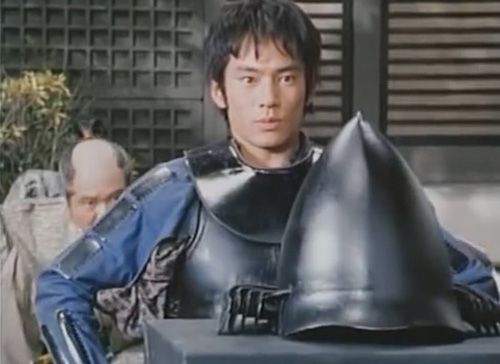
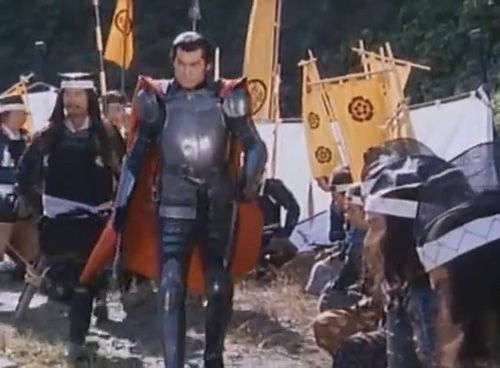
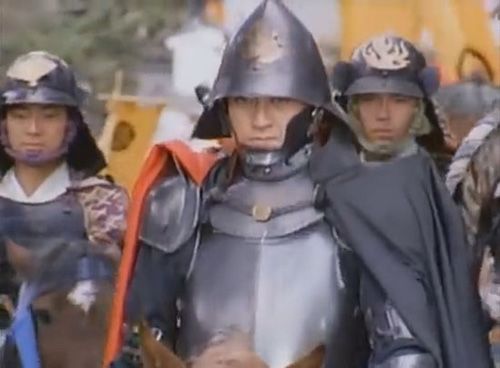
A very entertaining movie, probably one of my favourite by now, and a sturdy, affectionate portrayal of Nobunaga.
Recommended!
Ahahahah, Nobu as a father? I have to see this! I've always wanted to see Nobunaga interact with his children XD
ReplyDeleteHe barely spoke to them in Hyouge Mono (but at least the children showed up for a bit).
It's not a pleasant portrait XD He treats his kids pretty much like pets, LOL.
DeleteNagamasa was quite evil in this movie.I didn't like him before but I liked him even lesser after this! XD
ReplyDeleteGlad to hear it!
DeleteEven if I find him a somewhat charming figure, he's the guy I dislike the most in the whole Nobu's life-- Even more than Mitsuhide, go figure!
he is Oda Katsumoto on the Transformers..hahaha
ReplyDelete